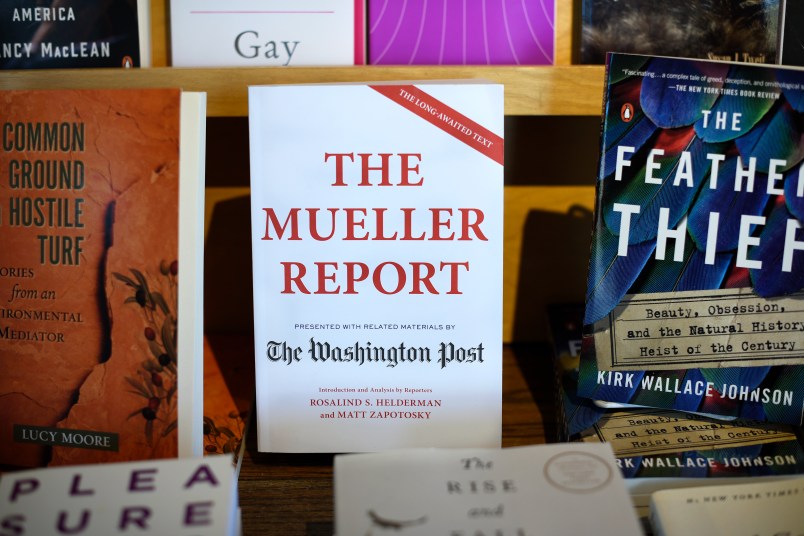A historical fiction author has asked the Supreme Court to review an appeals court decision that makes it harder for judges to release grand jury materials. The petition comes Democrats and journalists are seeking that a court do that in the context of special counsel Robert Mueller’s investigation.
The appeals court decision in question stems from a case that predates Mueller’s probe by several years. However, the case addresses how broad the authority is that judges have to release grand jury material.
The question now being put in front of the Supreme Court is whether judges are limited to the justifications for releasing grand jury material that are explicitly laid out in federal grand jury law. Or, if judges have an inherent authority beyond those exceptions to those materials, including “when the case is historically significant and the public interest strongly favors disclosure.”
Several appeals courts have said judges are not limited to those justifications in the law and can release materials for other reasons. The , which has jurisdiction over Mueller’s grand jury there, said that judges can only release the materials for those specific reasons.
That case — McKeever v. Barr — dealt with a request by historical fiction author Stuart McKeever to see grand jury materials from a 1950s investigation that was serving as inspiration for his book.
While not linked to the Mueller probe, the case has been closely watched for how it could affect the ability for the public or Congress to see Mueller’s underlying materials.
Federal law says explicitly that courts can release grand jury materials in seven specific circumstances, including “preliminarily to or in connection with a judicial proceeding.” In the past, Congress has gotten a court to release grand jury materials as part of an impeachment investigation into then-Judge Alcee Hastings.
House Democrats, in their lawsuit seeking the Mueller materials, are now arguing that their probe into President Trump’s behavior described in Mueller’s report falls under the “judicial proceeding” exemption to grand jury secrecy. They explicitly described their request as fitting into their consideration of whether to bring articles of impeachment against Trump. But some have doubted whether that claim will hold up in a court.
A reporters’ group that is also seeking the release of Mueller’s grand jury materials meanwhile does not have a a “judicial proceeding” they can point to.
A Supreme Court ruling that reverses the D.C. appellate court’s McKeever decision could open up other avenues for lawmakers and the public alike to convince a court to release Mueller’s materials, if the justices rule that courts do have that inherent authority.
The court is currently on summer break and will return for its next term on October 1.







Just in time for the orange blimp’s second inauguration?
Don’t give us nightmares. Please.
#copyeditor: What are you trying to say with that second sentence?
(The below was already posted in a Hive thread pursuant to this story)
this is the McKeever case – the one that created new precedent that is applicable to the Judiciary Committee’s efforts to get the Mueller Report grand jury material.
Note that this is just a request that the Supreme Court accept an appeal. My guess is that the Court will be compelled to do so, given that the McKeever decision is at odds with decisions in other Circuits.
But in either case, it could be bad news for the Judiciary Committee.
If the Supreme Court does not accept the appeal, relevant precedent would make it hard for the committee to get the grand jury material short of actually invoking impeachment powers.
If the Court does accept the appeal, the judge could delay her decision until the Court resolves the issue.
So, IOW, this case is regarding whether or not those limitations established by grand jury law are, themselves, against the law.
This will be very interesting. This will no doubt be used as legal precedent in future challenges against this and every future President.
Be very careful what you wish for.